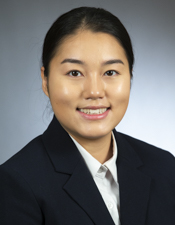House panel hears bill charging advisory council to continue work to end racial, other health inequities
The COVID-19 pandemic has clearly exposed the health inequities experienced by Black, Indigenous, and people of color communities, said Rep. Samantha Vang (DFL-Brooklyn Center).
To that end, she sponsors HF4112, which would formalize the relationship the Health Equity Advisory and Leadership Council has with the Department of Health.
The council advises the department on health equity issues and priorities, assists in efforts to advance health equity, and assists in developing and monitoring performance measures to advance health equity.
“The HEAL Council plays a critical role in supporting and advising MDH to effectively respond to the pandemic with culturally and linguistically appropriate strategies,” Vang said before the House Health Finance and Policy Committee laid the bill over Monday for possible omnibus bill inclusion. There is no Senate companion.
The bill would mandate the council remain in existence until state health inequities are eliminated, which the bill defines as when race, ethnicity, income, gender, gender identity, geographic location, or other identity or social markers are no longer predictors of health outcomes in the state.
“Eliminating health disparities that disproportionally impact people of color and socially marginalized communities is an arduous yet necessary task that the HEAL Council is committed to,” said member Ayah Mohammed.
“While MDH has made progress toward this, the work is far from done and requires working alongside groups like HEAL,” she said.
Idil Abdull, who describes herself as a Somali mom and autism advocate, said it is time to move beyond setting up advisory councils and time to start taking action.
“I feel like I have seen a bill like this too many times during my advocacy of over 10 years now,” she said. “There have been recommendations and reports. Nothing fruitful has been produced from them.”
She said the lack of progress in reducing health inequities is the result of a longstanding lack of leadership at the Health and Human Services departments.
While she empathizes with Abdull’s concerns and frustrations, Vang noted the council still has a major role to play in efforts to end health inequities.
“Equity work does not stop there,” Vang said. “I think that we can still establish this council while also addressing the concerns that you raised.”
The bill would also increase the membership of the Health Department’s Rural Health Advisory Committee from 16 members to 21 members by adding:
- a member of a tribal nation;
- a local public health representative;
- a health professional or advocate who works with people with mental illness;
- a representative who works with individuals experiencing health disparities; and
- an individual with expertise in economic development or who is an employer outside the seven-county metropolitan area.
Related Articles
Search Session Daily
Advanced Search OptionsPriority Dailies
Speaker Emerita Melissa Hortman, husband killed in attack
By HPIS Staff House Speaker Emerita Melissa Hortman (DFL-Brooklyn Park) and her husband, Mark, were fatally shot in their home early Saturday morning.
Gov. Tim Walz announced the news dur...
House Speaker Emerita Melissa Hortman (DFL-Brooklyn Park) and her husband, Mark, were fatally shot in their home early Saturday morning.
Gov. Tim Walz announced the news dur...
Lawmakers deliver budget bills to governor's desk in one-day special session
By Mike Cook About that talk of needing all 21 hours left in a legislative day to complete a special session?
House members were more than up to the challenge Monday. Beginning at 10 a.m...
About that talk of needing all 21 hours left in a legislative day to complete a special session?
House members were more than up to the challenge Monday. Beginning at 10 a.m...
